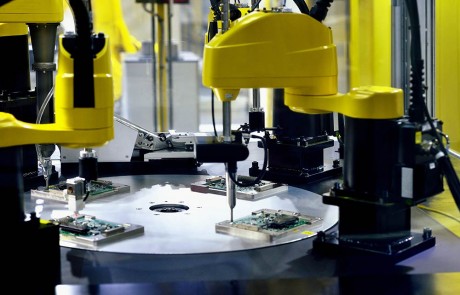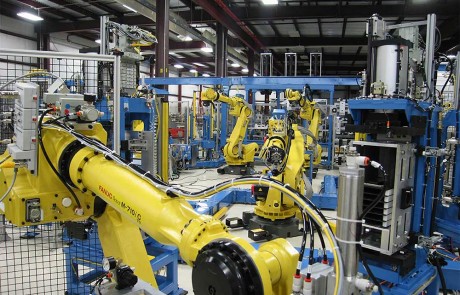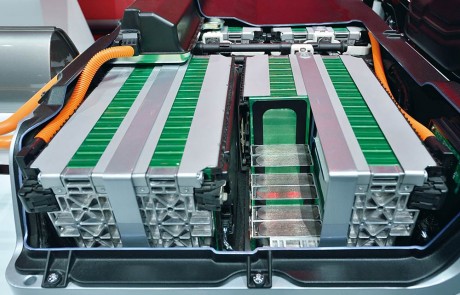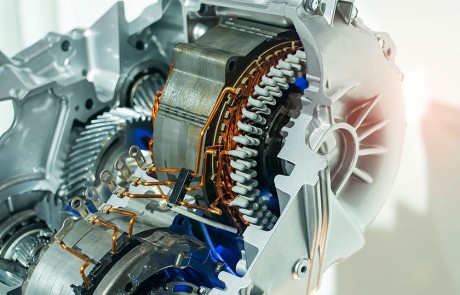Driven by electrification of automobiles and proliferation of consumer electronic devices, the electrical battery market is expected to grow by more than 14% per year through 2025. In 2017, McKinsey & Company estimated that electric vehicle manufacturers produced 30 gigawatt hours of storage capacity, 60% more than the previous year, and the trend continues.
As vehicles move more toward electrification, the risks to a failed power source or battery become more important. After all, a dead cell phone will not kill you, while loss of power at 70 mph could be more problematic. Large automotive and industrial batteries are made in layers and assemblies out of smaller storage cells and components. A single bad cell can scrap the entire battery pack, which can cost several thousands of dollars per unit.
To avoid unnecessary scrap from electronics and battery manufacturing lines, smart manufacturers inject quality control systems throughout their production process with the intent to catch defective parts before significant value has been wasted.
Edgewater Automation’s experience in automating assembly systems and test equipment is a critical piece to successful electronics and battery manufacturing and assembly.
Automating Integrated Electronics, Battery Assembly
Edgewater Automation has decades of experience in assembling, inspecting, and packaging electronic components and products, including consumer electronics, printers and printer cartridges, circuit boards for industrial and consumer applications, electrical and electronic switches and sensors, and complex wire harnesses and cables.
Within the electric battery industry, Edgewater has successfully automated the manufacturing, assembly and test of industrial batteries, automotive batteries, military batteries, power production components, photovoltaics, and nuclear power mechanical, electrical and electronic systems. Edgewater customers manufacture all primary types of batteries, including lithium ion, lead acid, pure lead acid.
Standard battery and electronic assembly processes ready for automation technology include application of dielectric grease to battery terminals, glue dispensing of battery components, resistance welding of terminals, pouring lead lugs, tinting and flexing of battery terminals, filling battery cells with acid, stuffing battery cases, encapsulating plate stacks, plate stacking and cutting, laser ablation of lithium terminals, robotic lithium forming, and sonic welding.
Quality Battery, Electronics Assembly and Inspection
Once the battery or electronic assembly is at a point for validation, Edgewater can help customers automate a variety of advanced visual and electrical tests, including high potential (hi pot), continuity, digital low-resistance ohmmeters (DLRO), and surge protection.
Our machine vision solutions can track product for inventory and front office applications to the unit level while providing the quality documentation battery and electronic manufacturers need to protect customer relationships and limit risk.



